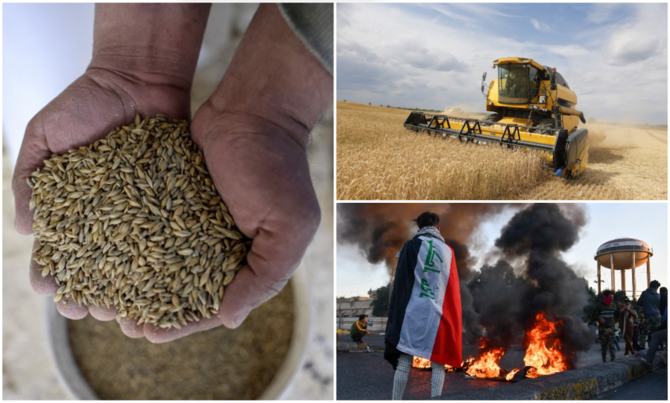- Survey says 66 percent of respondents l had no stance on the conflict, while 18 percent sided with Ukraine and 16 percent with Russia
LONDON: According to an exclusive Arab News-YouGov poll, the majority of people across the Middle East and North Africa do not seem to care very much about the war in Ukraine.
Experts, however, say there are plenty of reasons why they should.
“It does seem like it is taking place so far away,” said Abeer Etefa, the Cairo-based senior spokeswoman for the UN World Food Programme in the Middle East and North Africa.
Kyiv, Ukraine’s capital, is more than 3,000 kilometers from Riyadh.
“But also, the politics and dynamics of the conflict in Ukraine are far too complicated for a lot of the audiences in this region.”
The survey was carried out among 7,835 people across 14 countries in the MENA region between April 26 and May 4.
Asked where they stand in the Russia-Ukraine conflict, 18 percent sided with Ukraine, and 16 percent with Russia.
But an overwhelming 66 percent of respondents answered with a collective shrug, opting to take “no stance” on the crisis — indifference that peaked in Jordan and Algeria (74 percent) and Saudi Arabia (71 percent).
The complexities of European history and politics aside, Richard Gowan, UN director of the Brussels-based International Crisis Group, sees another reason for the apparent indifference of many Arabs to events in Ukraine.
“We are seeing a very big gap between how Americans and Europeans see this conflict, and how it’s viewed in other parts of the world,” he said.
“One key issue is that many people in the Arab world see this as NATO pitched against Russia, and the reality is that you’re not going to be able to turn around suspicions of NATO and the US in the Middle East and North Africa any time soon.”
Although the fighting in Ukraine and the reasons behind the conflict do indeed have nothing to do with the Arab world, shockwaves from the conflict are already affecting millions of Arabs, who are faced with rising costs of basic foodstuffs, said Etefa.
She added that even if the fighting stopped tomorrow, “the world will need between six months to two years to recover, from a food security perspective.”
Even before the conflict, she said, “by February food prices in many countries across the region had already reached an all-time high.
“Last year the cost of a basic food basket, the minimum food needs per family per month, increased by 351 percent in Lebanon, the highest increase in the region, followed by 97 percent in Syria and 81 percent in Yemen.
“And now the Ukraine crisis is driving up prices even higher.”
Experts had expected wheat from India to make up some of the shortfall from Ukraine, but last week the Indian government banned exports after crops in the country was hit by a heatwave, driving up the prices of some foods to a record high.
Even before the conflict, the WFP was providing assistance to millions across the region, in Yemen, Lebanon and Syria. Now, even as demands on its resources grow rapidly as a result of events in Ukraine, the rise in food and oil prices means the WFP’s own costs have escalated alarmingly.
“This is happening at a very difficult time for the World Food Programme,” said Etefa.
“Because of the war in Ukraine our global operating costs have been pushed up by $71 million a month, reducing our ability to help those in need in the region at a time when the world is facing a year of unprecedented hunger.
“That means that each day, globally, there are four million people fewer we can assist with a daily ration of food.”

